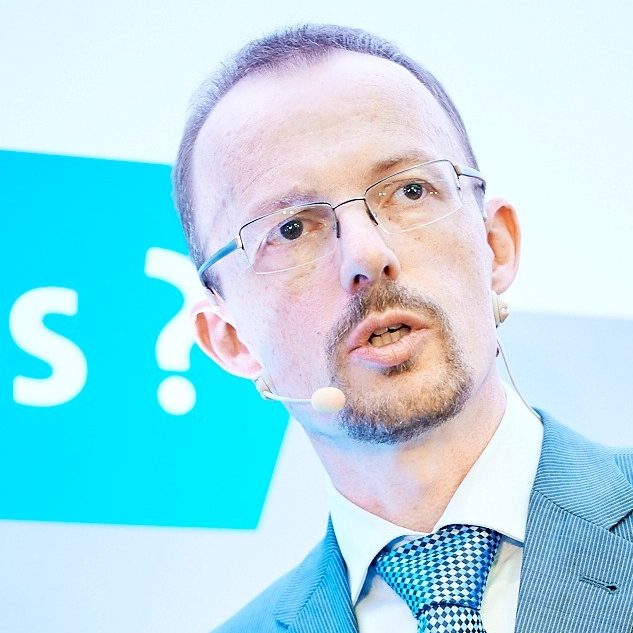About this Training
The proposed MiCA Regulation lays down a framework for the regulation of the issuance and provision of services concerning crypto-assets. MiCA also introduces a framework governing the issuance of 'so-called stablecoins' by introducing two new crypto-asset classes, namely Asset Referenced Tokens and E-Money Tokens.
Once it comes into force, the MiCA Regulation will be directly applicable in all EU Member States, ensuring enhanced levels of harmonisation in the regulation of crypto-asset markets in the EU. The proposed MiCA Regulation seeks to bring crypto-asset markets within scope of financial services regulation by allowing for innovation in a way that preserves financial stability, market integrity and investor protection.
The EU crypto-asset industry has seen growth in the past years. The MiCA Regulation provides much needed legal certainty in a sector which was previously unregulated and also provides a framework for 'so-called stablecoins' which have the potential for mass adoption in the EU. MiCA will also facilitate the integration of the traditional financial services sector with the crypto-asset sector, and promote innovation in this regard.
About the Lecturers
Ivan Zammit
Chief Operations Officer, MFSA

Ing. Ivan Zammit was appointed Chief Operations Officer in January 2020. He is a member of the senior leadership team of the MFSA responsible for the operational and corporate support functions of the Authority, including people and culture, technology, finance, administration and communications. Ing. Zammit works closely with the CEO and the rest of the management team to ensure a harmonised management approach for the Authority by coordinating corporate strategic and operational planning and execution to ensure the long-term sustainability of the Authority. He leverages operational and technical expertise to integrate people, process and technology such that the Authority operates efficiently and effectively, developing operating policies and procedures to ensure strong governance and operational infrastructure, and to ensure that all activities are performed in compliance with local and EU legislation governing the Authority’s activities. Ing. Zammit graduated with an Honours Bachelor’s degree in electrical engineering from the University of Malta and holds a Master’s degree in Business Administration from Henley Business School, UK. Throughout his professional career spanning over twenty-five years, Ing. Zammit has held various senior management positions and has vast experience in operations, technology and business management in the telecoms sector. He was a member of the executive team at Vodafone Malta with responsibility for its corporate and small business segments before spending some years carrying out management consulting as private practice on a full-time basis specialising in business transformation through people and technology.
Dr. Vassiliki Lazarakou
Chair of the Hellenic Capital Market Commission

Dr. Vassiliki Lazarakou is Chair of the Hellenic Capital Markets Commission (HCMC) since September 2019.In December 2020 she was elected as a member of the Management Board of the European Securities and Markets Authority (ESMA) for a term from 1 January 2020 until June 2023.She has also been elected as Chair of the ESAs‘ (ESMA, EBA & EIOPA) Sub - Joint Committee on Securitisations and she is member of the Joint Committee. She is also an Alternate Member of the Enforcement Panel of ESMA. Dr. Lazarakou has a Doctorate in Law (JSD) from New York University School of Law, New York, U.S.A. and her Doctoral thesis was on “Greek privatizations in International Perspective”. She also has an LLM in International Legal Studies from New York University School of Law and Bachelor in Law from the Athens University, School of Law. She is a lawyer admitted at both the Athens Bar and the New York Bar Association with expertise on capital markets, M&As, privatizations, corporate and commercial law and other similar issues. She has worked for more than 20 years as a Partner at several law firms and for more than 10 years she was heading the relevant Banking, Capital Markets and Finance Department of such Firms. From 2012 -2015, she was also a First Vice-Chair of the HCMC and an alternate member of the ESMA Board of Supervisors. During her term as a Vice Chair, she achieved the political agreement for the adoption of the Regulation and Directive on “Markets in Financial Instruments” (MiFID II/ MIFIR) as Chair of the relevant Working Group of the Council in 2014. Also, she chaired the Council Working Group for the draft Regulation on European Long Term Investment Funds (ELTIFs) and managed to achieve the general approach by the Council in June 2014.
Jan Ceyssens
Head of the Digital Finance Unit, European Commission

Jan Ceyssens is Head of the “Digital Finance” Unit in the Directorate General for Financial Stability, Financial Services and Capital Markets Union at the European Commission. He was previously Member and Deputy Head of the Cabinet of Vice President Dombrovskis and Member of the Cabinet of Vice-President Barnier, and Team Leader for Financial Supervision at the European Commission's Internal Markets and Services Directorate General. He graduated in law from Humboldt University in Berlin and holds a Masters degree in European Law from King's College London. He works at the European Commission since 2006, initially in the Directorate General for Competition's Cartels enforcement Directorate and since 2009 in the Internal Markets and Services Directorate General.
Dr. Joachim Schwerin
Principal Economist, GD Internal Market, Industry, Entrepreneurship and SMEs (GD GROW), Unit G3 Digital Transformation of Industry, European Commission

Dr. Joachim Schwerin is Principal Economist in the unit responsible for the Digital Transformation of Industry within the Directorate-General Internal Market, Industry, Entrepreneurship and SMEs (DG GROW) of the European Commission. He is responsible for developing the policy approach of DG GROW towards the Token Economy and Distributed-Ledger Technologies as well as their applications for industry and SMEs. In 2020, he coordinated DG GROW’s input into the Digital Finance Strategy, including the MiCA Regulation. Previous responsibilities after he had joined the European Commission in 2001 included the coordination of industrial and competition policy, the design of policy measures to improve SME access to digital finance and conceptual work on strategic aspects of the EU’s competitiveness in the global economy. Joachim holds a PhD in economics from Dresden University of Technology and was Post-Doc Research Fellow at the London School of Economics.
Herman Ciappara
Head, Virtual Financial Assets, MFSA

Herman Ciappara was appointed as Head of Virtual Financial Assets in March 2020, after joining the MFSA as Head of FinTech & Innovation in September 2019. Herman started his 30-year long career at the Central Bank of Malta in 1989, holding several managerial positions within a number of functions at the Bank, amongst them, Information Technology, Operational Risk, Business Continuity and Information Security. Since 2011 he has held the position of Head of Payments & Banking, responsible for SEPA Regulation, Interchange Fee Regulation and PSD2, whilst acting as a catalyst function to influence retail payments policy and the development of the payments landscape in Malta. During this time he was Chair for the Payment System User Group and the API Standard Working Group, working closely with the Malta Bankers’ Association, as well as Chair of the Malta Clearing House Committee and the Malta SWIFT User Group. On a European landscape, Herman was an active member in the Market Infrastructure and Payments Committee at the European Central Bank, the Standing Committee for Payment Services at the European Banking Authority and the Commission Expert Group on Banking, Payments and Insurance at the European Commission. Herman graduated in Business Management with B.A. (Hons.) from the University of Malta and holds a Graduate Diploma in the Management of Information Systems from the University of Greenwich.
Camille Pepos
Senior Manager, Virtual Financial Assets, MFSA

Camille Pepos is a Senior Manager within the Virtual Financial Assets function of the MFSA which is entrusted with the authorisation and supervision of VFA Service Providers, VFA Agents and Whitepapers. An Economist by academic background, Camille also possesses two Master degrees in Finance and Wealth Management from the University of Nice Sophia Antipolis and IAE Graduate School of Management. Before joining the MFSA, Camille held various roles in private banking, fundraising, fintech advisory and corporate services.
Samantha Cuyle
Analyst, Virtual Financial Assets, MFSA

Paolo Giudici
Professor of Statistics and of Financial Data Science, University of Pavia

Professor of Statistics and Financial Data Science. Supervisor of about 180 Master's students and 21 Ph.D students, currently working as academic researchers or data scientists, in the financial sector and in IT/consulting companies. Author of 200+ scientific publications among which 94 indexed in Scopus (with 1372 citations and an h-index of 21), focused on the construction of multidimensional statistical models to obtain accurate, explainable and robust economic predictions and risk management measures to improve the sustainability of digital and financial technologies. The publications have appeared in the top 10% Statistics, Finance and Artificial Intelligence Journals such as the Journal of the Royal Statistical Society series B, Journal of Business and Economics Statistics, Journal of Financial Stability, Finance Research Letters, Journal of Banking and Finance, Expert systems with applications, and Neurocomputing. Coordinator of 12 funded scientific projects, among which the European Horizon2020 projects “PERISCOPE: Pan-European response to the impacts of COVID-19 and future pandemics and epidemics (2020-2023)” and “FIN-TECH: Financial supervision and Technological compliance" (2019-2021). Editor of "Artificial Intelligence in Finance", Frontiers. Associate Editor of “Digital Finance”, Springer; and of "Risks", MDPI . Research fellow at the Bank for International Settlements and at the University College London center for Blockchain technologies. Expert at the European Insurance and Occupational Pensions Authority (EIOPA). Expert at the Italian Ministry of development for the National AI strategy. Member of the Academic Advisory Body of the International Association for Trusted Blockchain Applications (INATBA). Member of the steering committee of the Italian Statistical Society (SIS), the Association of Italian Financial Risk Managers (AIFIRM) and the European Network for Business and Industrial Statistics (ENBIS). Member of the European Big Data Value Association (BDVA) , the International Society for Bayesian Analysis (ISBA), the Italian Econometric Society (SIDE).
Thomas Leach
Ph.D Student, University of Pavia

Thomas Leach is a PhD student at the University of Pavia, his main research interests are in financial technologies and the impact of digitalisation on the economy. Recently, his work has focused on stablecoins and the impact of cyber risks to the economy and their drivers.
Learning Objectives
Crypto-Assets
Digital Finance Package: Introduction and Scope
MiCA: Maltese Perspective
MiCA: Benefits for the EU Crypto-Assets Industry
Crypto Assets and the MiCA Regulation as Enablers for the EU Token Economy
Delivery Method
Online
WebEx
Entry Requirements
Regulatory Authorities, Central Banks, EU Institutions, Academics & Students
Duration
2.5 hours
Date & Time
13th April, 2021 09:00
What's Included
Detailed Presentations by Lecturers

